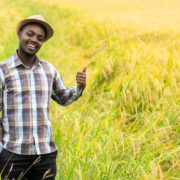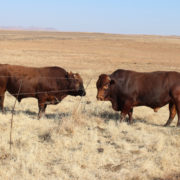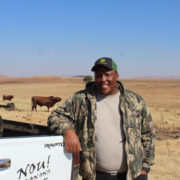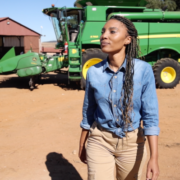Get rewarded for regenerative agriculture – African Farming
South African farmers practising regenerative agriculture can now earn extra income through the country’s first internationally recognised carbon offset programme for the agricultural sector.
The gradual shift towards regenerative agriculture across South Africa received much-needed support this week when carbon management company Climate Neutral Group (CNG) successfully listed the AgriCarbon Programme under the internationally recognised Verra Carbon Standard. This is the first project in the world to be approved for Verra Pipeline Listing using the new Verra carbon methodology “VM0042: Improved Agricultural Land Management”.
For most farmers, the transition to regenerative agriculture has been driven by increasing input costs and declining soil quality. It has also been a response to drought conditions. Now there are also direct financial benefits available to regenerative farmers in the form of carbon credit revenue.
“Any farmer who is currently using or planning to carry out regenerative practices on their farm and is able to submit soil data to us every year can participate in the AgriCarbon Programme,” says Mr Nyasha Shumbayarerwa, Agriculture Project Coordinator at CNG.
Mr Gray Maguire, Project Manager at CNG, confirms: “The priority right now is to enrol regenerative famers with existing soil data to make sure that these early adopters get to maximise their benefit for being pioneers in the sector.”
HOW IT WORKS
The AgriCarbon Programme, run by CNG, works by providing famers with an additional source of income by helping them certify and sell highly sought-after agricultural carbon credits. CNG determines the amount of carbon credits generated on a farm via the received soil data, which is then submitted to the carbon auditor and, finally, to the Verra Carbon Standard. Including multiple farms under the AgriCarbon Programme substantially reduces carbon development and auditing costs per farm, thereby maximising income to the farmers.
By joining the programme, farmers avoid the complexity and high-cost barriers of certifying carbon credits themselves, so they can focus on the health of their soil and business.
Mr. Franz Rentel, Country Director of CNG South Africa, says: “Companies in South Africa and across the world are committing to net-zero carbon emissions and are searching for carbon credits of the highest quality. They’re turning to agriculture to purchase credits that support farmers in transitioning toward farming practices that remove carbon from the atmosphere and enrich the soil. Climate Neutral Group, together with its partners, has the support, technology and finance to enable farmers to generate high-quality carbon credits that companies want to buy.”
Farmers have until 30 September 2021 to maximise their carbon credit income for accumulating carbon in their soil over the past five years and will receive their first payment as soon as 2022. (For full details visit https://climateneutralgroup.co.za/agricarbon/)

ABOUT CLIMATE NEUTRAL GROUP
Climate Neutral Group (CNG) is dedicated to combating climate change and supports companies on their journey to net-zero emissions by 2050, in line with the Paris Agreement. Its team of experts supports more than 3 000 companies globally and, as a result, has offset more than 10 million tonnes of CO₂ and improved quality of life for millions of people around the world. CNG was founded in 2002 by Triodos Bank and DOEN Participaties. Today, CNG is active globally. The company has been a founding partner and member of The International Carbon Reduction and Offset Alliance (ICROA) since 2008, B-Corp-certified since 2015 and an ISEAL subscriber since 2019.
For more information e-mail: info@climateneutralgroup.co.za or visit https://climateneutralgroup.co.za/












